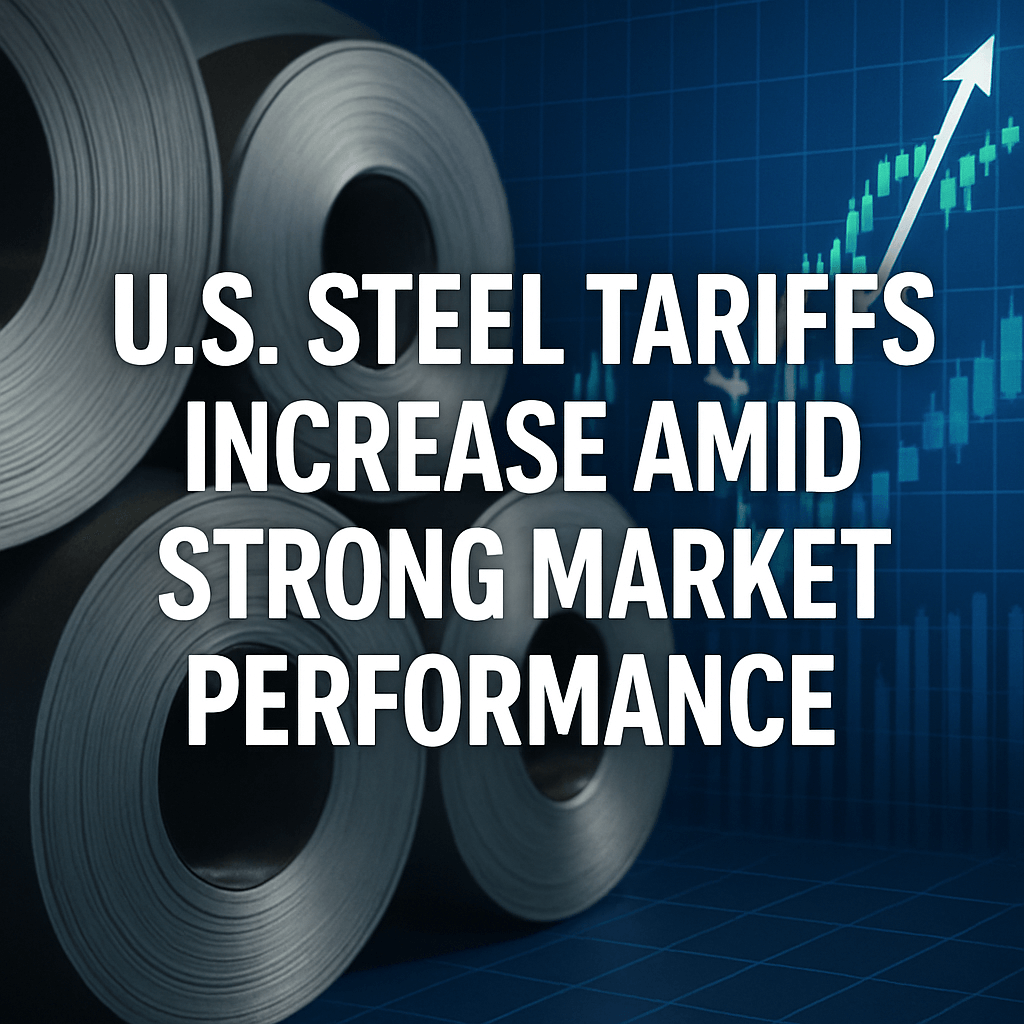U.S. Steel Tariffs Increase Amid Strong Market Performance

Stock markets exhibited upward momentum on Wednesday, undeterred by U.S. President Donald Trump’s early morning remarks on social media, in which he described Chinese President Xi Jinping as “hard to make a deal with.” This sentiment came ahead of a substantial increase in tariffs imposed on steel and aluminum imports.
Increased Tariffs Details
The U.S. government has officially doubled its tariffs on steel and aluminum, raising them from 25% to an unprecedented 50%. The only exemption from this elevated tariff regime is the United Kingdom, which will see its steel and aluminum exports taxed at a reduced rate of 25% due to ongoing trade negotiations.
Market Reactions
As of 4:30 AM Eastern Time, S&P 500 futures had risen by 0.2%, while the STOXX Europe 600 index appreciated by 0.4%.
South Korean Response: Driving regional markets, South Korea’s KOSPI index surged by 2.7% following the election of left-wing candidate Lee Jae-myung as president. Taiwan’s Taiex index also saw a significant uptick of 2.3%, with a notable 4.2% increase in the shares of Taiwan Semiconductor Manufacturing Company (TSMC).
In addition, Japan’s Nikkei 225 index and Australia’s S&P/ASX 200 both recorded increases just shy of 1%, while mainland China’s CSI 300 rose by 0.4%. Although Hong Kong’s benchmark Hang Seng Index faced some fluctuations post-Trump’s remarks, it managed to close 0.6% up. India’s NIFTY 50 also saw a modest gain of 0.3%.
Trade Tensions and Trump’s Remarks
Trump’s post is part of an ongoing narrative, as it marks the second time he has publicly expressed dissatisfaction with China in the past week. Last Friday, he accused Beijing of “totally violating its agreement” with the U.S. These exchanges reflect the escalating rhetoric from both Washington and Beijing, with each side alleging the other is obstructing a recently negotiated trade deal, which took place in Geneva.
Upcoming Diplomatic Engagements
Amid these heightened tensions, U.S. Treasury Secretary Scott Bessent hinted at an imminent call between Trump and Xi, stating he expects the two leaders to converse “very soon.” White House Press Secretary Karoline Leavitt has echoed similar sentiments, indicating that discussions could occur this week. Notably, Xi has delegated the bulk of U.S.-China trade negotiations to his advisors, possibly indicating a strategic posture from Beijing.
Rare Earth Metals Concerns
In Geneva, the U.S. administration claimed that China consented to reduce some non-tariff barriers, although specifics remain unclear. Presently, a major point of contention is the delay in China’s approval of rare earth mineral exports to the U.S., a measure that has spurred discontent among U.S. officials. China, responsible for approximately 70% of the global supply of these critical materials integral to technology manufacturing, has implemented export controls on rare earths in retaliation to American tariffs.
- Rare earth elements are crucial for the production of semiconductors, electronics, automotive components, and aerospace technologies.
- Experts indicate that increased concerns regarding access to these materials are prompting U.S. automakers to consider relocating some facilities to China.
Conclusion: Implications for Global Trade
As the U.S. continues to experience a turbulent trade relationship with China, both nations are poised for a critical juncture. Washington’s recent expansion of tariffs and China’s push for stricter controls over key exports represent significant developments that could reverberate across global markets. As both countries navigate these challenges, the prospect for resolution remains uncertain, impacting the broader dynamics of international trade.
Expert Opinions
Market analysts caution that continued volatility in trade policies could lead to increased uncertainty in global markets. According to economic experts, a failure to resolve these disputes could risk not only bilateral economic relations but also global supply chains that rely heavily on china’s manufacturing prowess.
Investors are advised to remain vigilant, as shifting trade landscapes may necessitate adjustments in investment strategies and corporate operations, particularly in sectors highly exposed to tariffs and international trade restrictions.